Awards and Honors, Other
Nominations for the $250,000 Kabiller Prize, the World’s Largest Monetary Award for Achievement in Nanomedicine, Open January 3
January 03, 2025
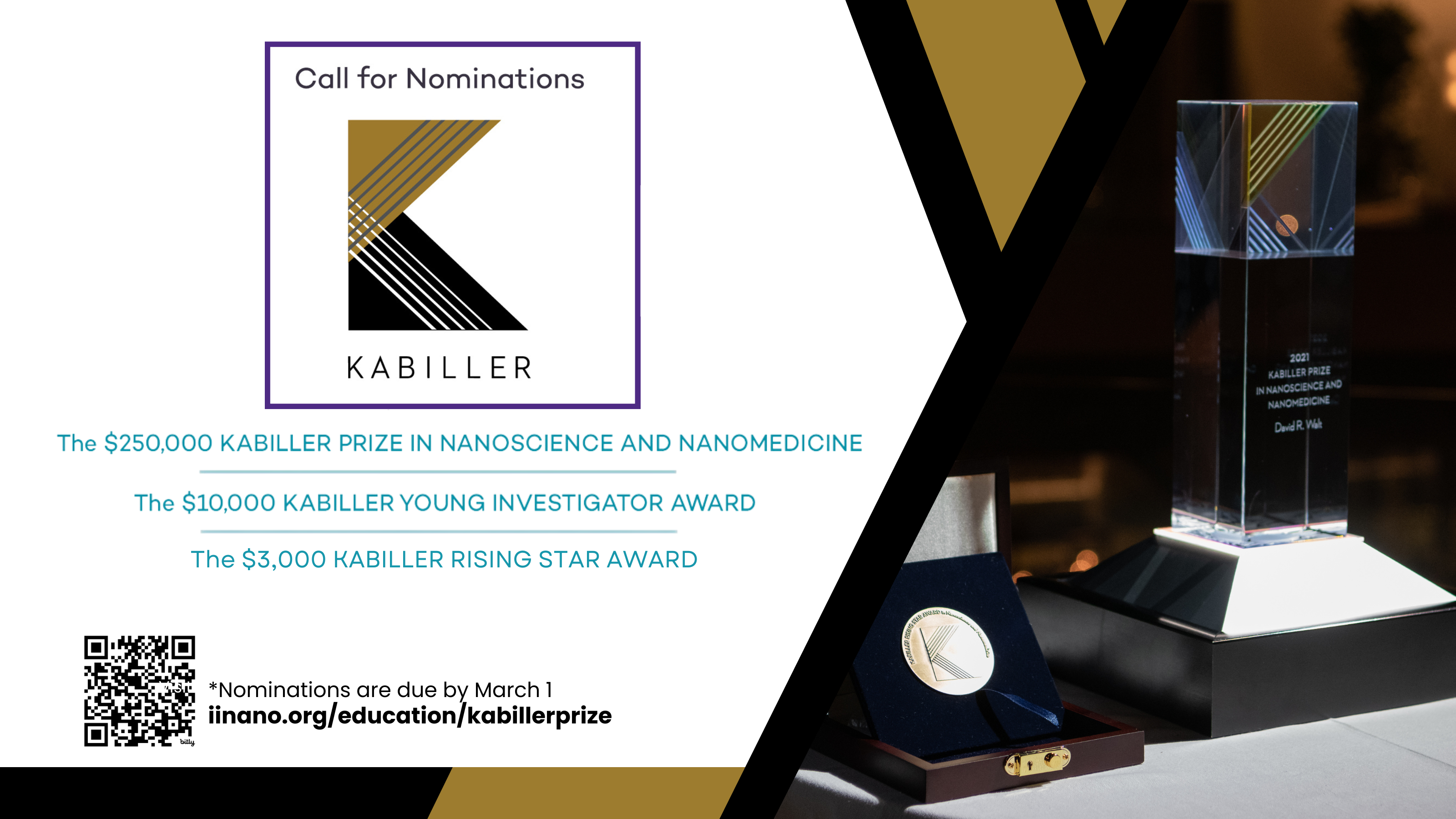
The award is presented alongside the $10,000 Kabiller Young Investigator Award and the $3,000 Kabiller Rising Star Award
Northwestern University is now accepting nominations for the 2025 Kabiller Prize in Nanoscience and Nanomedicine, the world’s largest monetary award for achievement in nanomedicine. Alongside the $250,000 Kabiller Prize, nominations are also open for the $10,000 Kabiller Young Investigator Award and the $3,000 Kabiller Rising Star Award.
This year marks the 10th anniversary of the Kabiller Awards, which have recognized luminaries in nanoscience and nanomedicine since their inception in 2015. The Kabiller Prize has been awarded to Jeffrey Hubbell (2023), David Walt (2021), Chad Mirkin (2019), Robert Langer (2017), and Joe DeSimone (2015), each of whom has made groundbreaking contributions to nanotechnology and its application to medicine.
The Kabiller Young Investigator Award, which honors emerging researchers for their impactful discoveries, has recognized Xiaodong Chen (2023), Bin Liu (2021), Molly Stevens (2019), Liangfang Zhang (2017), and Warren Chan (2015).
The Kabiller Rising Star Award, established in 2021 to honor early-career faculty for their exceptional contributions to nanoscience, has been presented to Ke Zhang (2023) and Natalie Artzi (2021).
These prestigious awards, presented biennially, are made possible through the generosity of David G. Kabiller (’85, ’87 MBA), Co-Founder and Head of Business Development at AQR, a global investment management firm. Kabiller is a Northwestern University Board of Trustees member, chair of the Executive Council of the International Institute for Nanotechnology (IIN), a member of the Advisory Council of the AQR Asset Management Institute at the London Business School, and a former Trustee for the Terra Foundation for American Art.
“For a decade, the Kabiller Awards have celebrated the exceptional talent and vision of the global nanoscience and nanomedicine communities,” said Kabiller. “These awards honor scientists who embody curiosity, risk-taking, and gratitude—qualities that drive innovation and inspire future generations.”
Many nanoparticles for medical use are smaller than 100 nanometers in size — significantly smaller in size than cells that make up the human body. At the nanoscale, structures often possess unique properties that researchers can harness to develop innovative ways to study, track, and treat diseasee. For example, spherical nucleic acid (SNA) nanoconstructs, which are foundational to the field of structural nanomedicine, can enter cells to track and potently treat disease. These distinctive properties make SNAs a promising basis for advanced cancer therapies and vaccines. Such breakthroughs underscore the potential of nanotechnology to tackle pressing healthcare challenges.
“The Kabiller Awards have set a gold standard for recognizing excellence in nanoscience and nanomedicine,” said Chad Mirkin, founding director of the International Institute for Nanotechnology (IIN). “These awards inspire innovation by celebrating researchers who are tackling some of the most significant challenges in healthcare and technology. Thanks to David Kabiller’s visionary support, we are helping to drive scientific breakthroughs that will benefit people around the world.”
Nominations for the 2025 Kabiller Prize and its associated awards open on January 3, 2025, and close on March 1, 2025. Recipients will be announced ahead of the 2025 International Institute for Nanotechnology Rosemary Schnell Symposium on October 15th, where the winners will deliver keynote lectures alongside other leading researchers in the field.
For more information about the Kabiller Awards and nomination criteria, visit iinano.org/education/kabillerprize.
Kabiller Prize Past recipients:
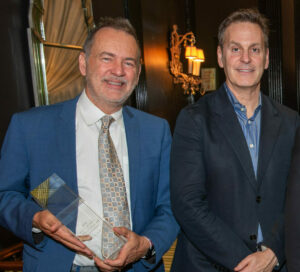
30523 IIN Symposium NWU 2023
Jeffrey Hubbell, 2023
Hubbell’s work has revolutionized the fields of nanoscale bioengineering and regenerative medicine, exemplifying the spirit of innovation and excellence that the Kabiller Prize represents.
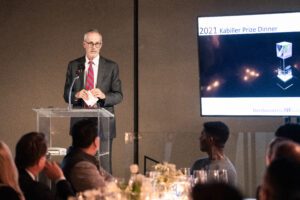
David Walt, 2021
David Walt pioneered the microwell array-based platforms for ultrasensitive biomarker detection, providing practical solutions to urgent analytical problems in genetics, medical diagnostics, and environmental sensing.
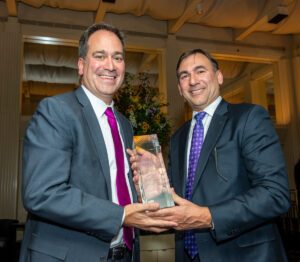
Chad Mirkin, 2019
Chad Mirkin is the founding director of Northwestern’s International Institute for Nanotechnology and the George B. Rathmann Professor of Chemistry in the Weinberg College of Arts and Sciences, professor of medicine at the Feinberg School of Medicine, and professor of chemical and biological engineering, biomedical engineering, and materials science and engineering at the McCormick School of Engineering.
Mirkin is one of the most cited chemists in the world and one of the most cited individuals in the history of nanotechnology. His discovery and development of spherical nucleic acids (SNAs), which form a cornerstone of bionanotechnology, have changed how researchers think about and use DNA and RNA, leading to significant advances in treating diseases spanning from brain cancer to psoriasis.
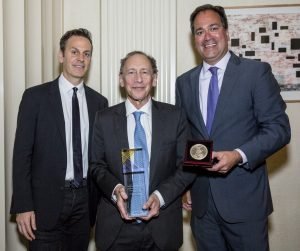
Robert Langer, 2017
Robert Langer is the David H. Koch Institute Professor in the department of biochemistry at Massachusetts Institute of Technology (MIT) and a pioneer in multidisciplinary science. The Langer Laboratory at MIT, with more than 100 students, postdoctoral fellows, and visiting scientists at any given time — while maintaining more than $10 million in annual grants — is the world’s largest academic biomedical engineering laboratory.
Described by some as “the Edison of medicine,” Langer has authored more than 1,400 articles and is the most cited engineer in history. He has more than 1,284 issued and pending patents worldwide, and his patents have been licensed or sublicensed to more than 350 pharmaceutical, chemical, biotechnology, and medical device companies. His lab, either alone or in collaboration, has produced 40 companies with an estimated market value of more than $80 billion.
Young Investigator Award Past recipients:
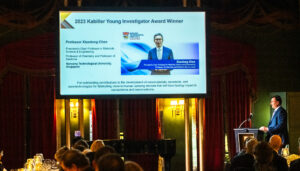
30523 IIN Symposium NWU 2023
Xiaodong Chen, 2023
President’s Chair Professor in Materials Science and Engineering at Nanyang Technological University in Singapore, Chen has made significant contributions to developing nanomaterials, nanotools and nanotechnologies.

Bin Liu, 2021
Bin Liu has contributed outstandingly to developing nanobiotechnology platforms that advance biomedical research and nanomedicine. In addition, she works to find innovative, practical solutions for disease diagnosis and treatment, bridging cutting-edge and translational research.
Her numerous achievements have included the development of water-dispersible polyfluorenes for DNA sensing, the creation of light-up molecular probes and multifunctional nanoparticle probes leading to the visualization of cancer metastasis and monitoring of tissue regeneration after stem cell transplantation or immunocellular therapeutics, and the development of formulation strategies to track the delivery of nanomedicine and in-situ evaluation and reporting of their therapeutic effects at the cellular level.
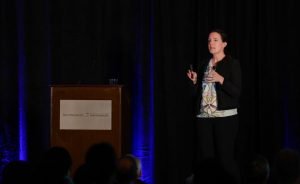
Molly Stevens, 2019
Molly Stevens, professor of biomedical materials and regenerative medicine at Imperial College London, received the award for innovative applications that address critical healthcare challenges. These include the development of nanoparticle-based serological tests for surveillance of Ebola survivors in Uganda using smartphone-enabled technology.
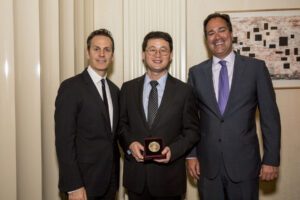
Liangfang Zhang, 2017
Liangfang Zhang, a professor at the University of California, San Diego, received the award for creating unique biology-mimicking nanotechnology that holds great promise in medicine. The technology takes synthetic nanoparticles and encloses them in natural cell membranes.
Kabiller Rising Star Award Past recipients
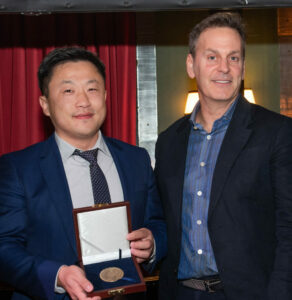
30523 IIN Symposium NWU 2023
Ke Zhang, 2023
Zhang, a professor in Northeastern University’s department of chemistry and chemical biology, has made contributions to synthesizing DNA-polymer biohybrid materials and understanding their properties and uses in life sciences and medicine.
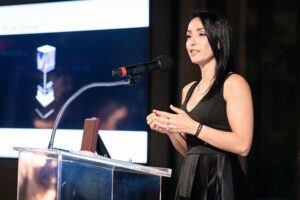
Natalie Artzi, 2023
Natalie Artzi is a rising star in intelligent nanomaterials for medical applications. Her research has defined a new niche at the intersection of biomaterials science, biology, and medicine that examines the contextual and reciprocal interactions between materials and tissues to improve human health.